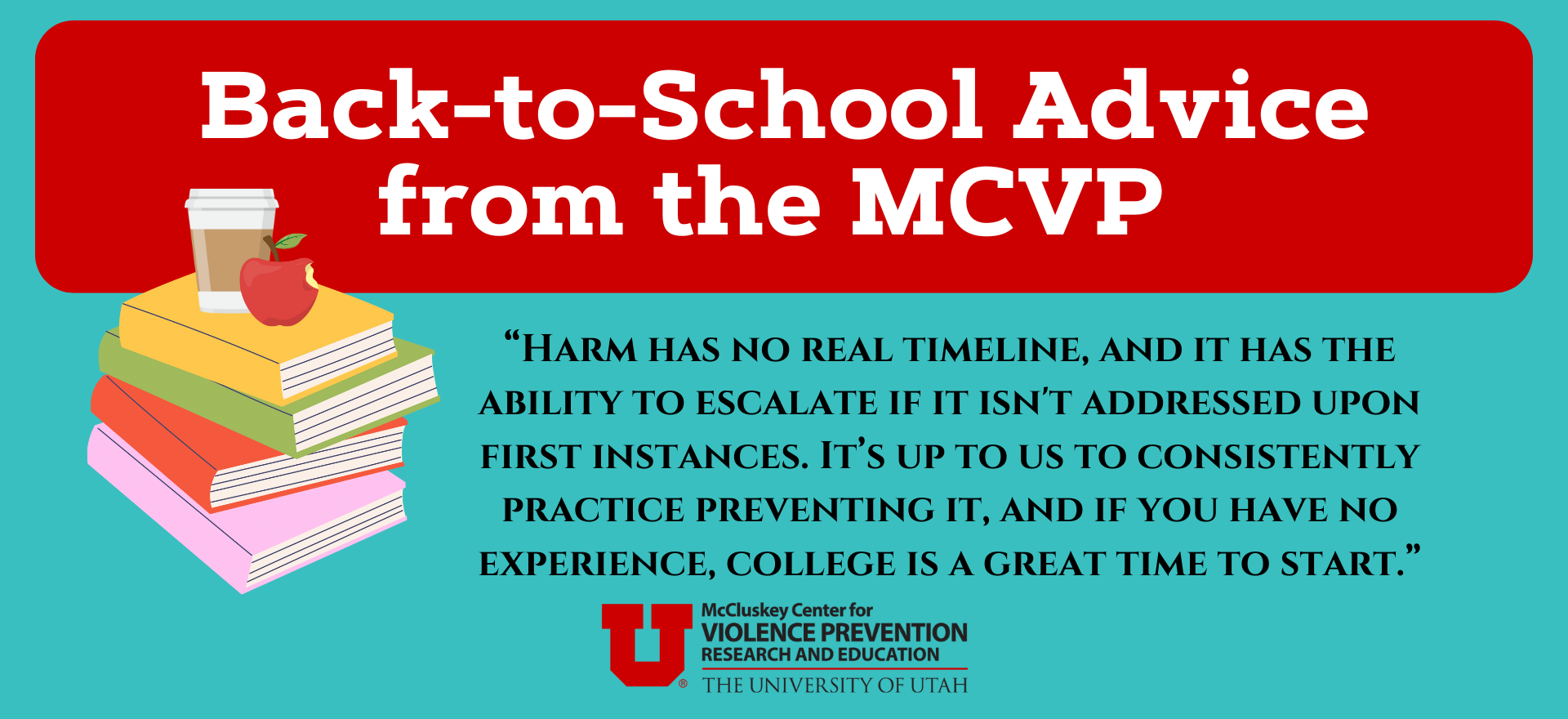
Jilly Mcbane, Student Staff Member
From one student to another, happy back-to-school season. For new and returning students on campus, I wish you nothing but amazing experiences and endless opportunities to learn as we start a new year at the University of Utah. Although I love the beginning of fall semester, I can’t help but feel a little anxious, and I will tell you why:
I remember my very first college party… Dancing side by side with a bunch of friends, listening to loud music, and lots of drinking. I’m not going to lie, I had so much fun. But when seemingly harmless closeness turns into unwanted touching or “accidentally” brushing someone’s back or butt, and having a drink turns into pressure to keep drinking, things become less fun. And when walking someone home turns into sneaking up into their room and pressuring them into something they’re not comfortable with, it gets very serious.
I’m not saying you shouldn’t go out and have fun. I’m also not saying that you shouldn’t be aware of your surroundings and those around you in a new environment. However, warning young people to avoid going out—and if they do, to avoid becoming potential targets of harm can be somewhat unproductive. This kind of approach puts all of the responsibility on the individual to stay out of harm’s way, rather than teaching individuals about what might be harmful in the first place.
If we truly want to end harm, we have to become mindful about how and where we are directing our advice. There is a phenomenon known as The Red Zone, that results in lots of well-meaning advice directed at first year students to protect themselves from harm, because vulnerability to sexual assault is supposedly at its peak at the start of the school year. While there is nothing wrong with prioritizing safety, this narrative completely leaves out the people who are actually causing harm.
If I could say anything to college students now, I would tell them to be vigilant of their own behavior. Practice kindness and empathy in all interactions, and don’t allow newfound independence to go to your head. By this, I mean remembering to respect others’ boundaries, like asking whether or not they are comfortable with physical touch. Another thing is recognizing our differences when it comes to things like race, gender, and sexual orientation, and how these identities inform our perspectives in life. I also mean taking accountability if you do mistreat someone. This can be as simple as apologizing if you make a joke that ends up offending someone or making them uncomfortable. You can do whatever you want, but not at the expense of someone else.
There is mixed evidence to support whether rates of sexual violence are actually higher in the first few months of college. Even if this is the case, this kind of time-related information might cause unnecessary panic between August and November, coupled with a feeling of false security during the other months of the year. It might also cause us to blame harm on environmental factors (whether that be hot weather, more events on campus, Greek life, etc.) rather than addressing the root causes, which are people themselves. Harm has no real timeline, and it has the ability to escalate if it isn’t addressed upon first instances. It’s up to us to consistently practice preventing it, and if you have no experience, college is a great time to start.
